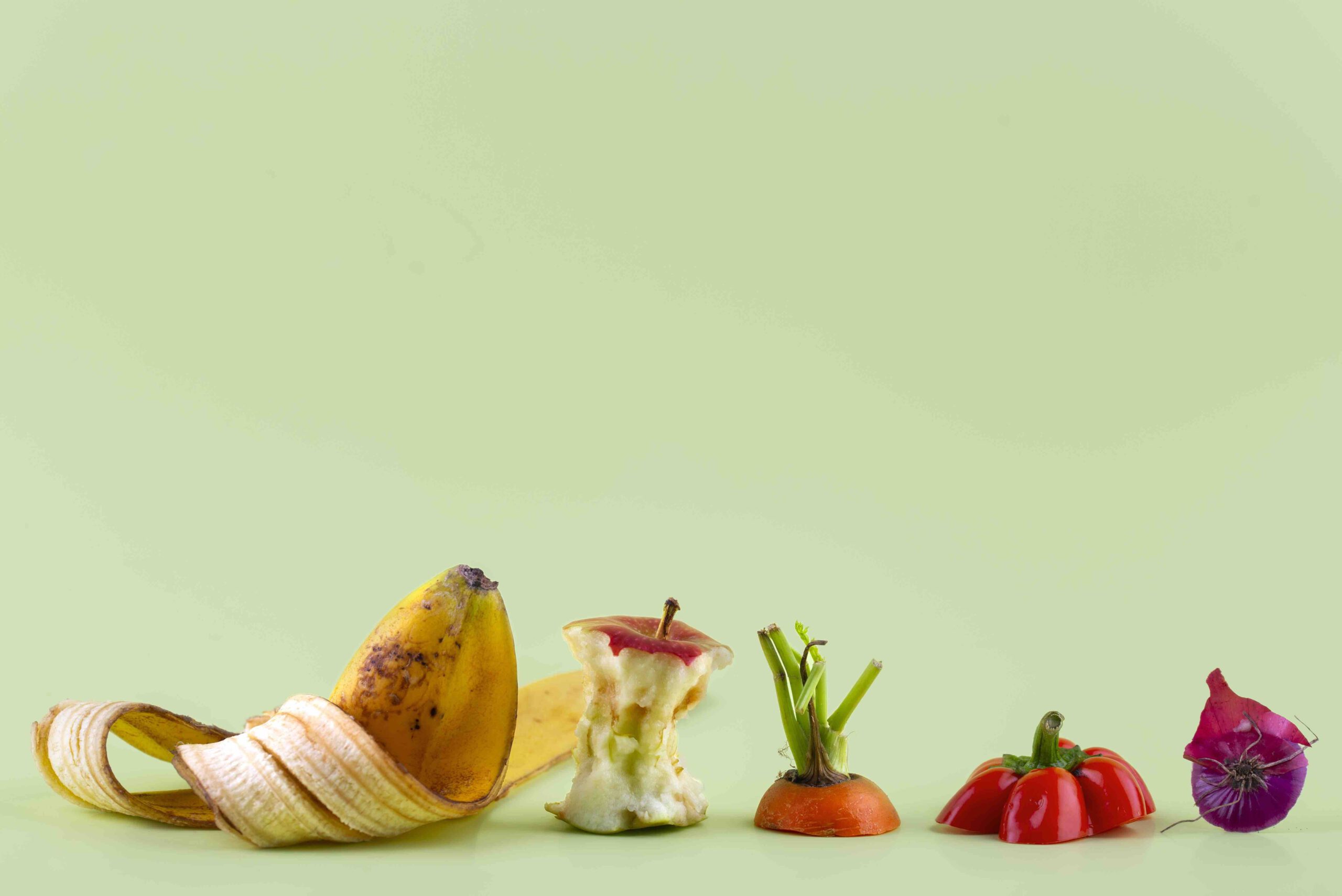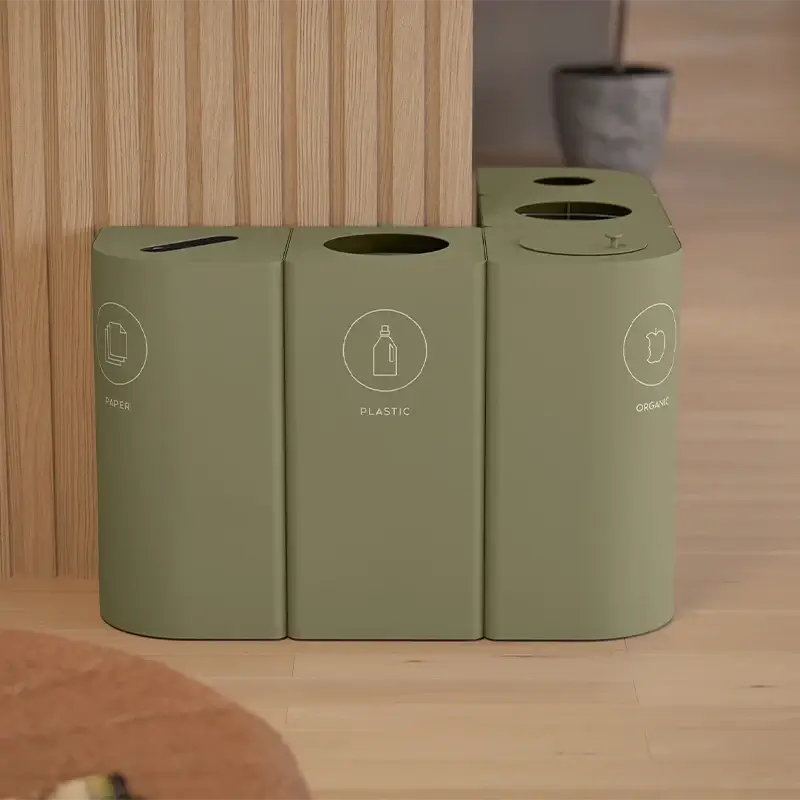Requirements for separate collection of bio-waste
From the 1st of January 2024, it will be mandatory for food waste to be collected separately from households and businesses. This requirement is linked to the EU Waste Framework Directive. Article 22 of the Waste Framework Directive and require EU Member States to ensure that bio-waste is either separated and recycled at source, or is collected separately and is not mixed with other types of waste.
What are the EU Waste Framework Directive targets for 2035?
Improving the management of municipal waste has been a long-standing objective of EU waste policy, with the aim of harvesting useful resources from waste and reducing its environmental harm through better management. The EU Waste Framework Directive requires that EU Member States increase the share of municipal waste prepared for reuse or recycled to 55% of all municipal waste generated by 2025, 60% by 2030 and 65% by 2035.
To achieve a high recycling rate, it is important to capture well the materials that make up the largest share of municipal waste. On average, bio-waste (food and garden waste) constitutes the largest single fraction (37%), followed by paper and cardboard, plastics, wood, glass, metals, textiles and waste electrical and electronic equipment. Because bio-waste is the largest component of municipal waste, collecting bio-waste separately is crucial for meeting recycling targets.
Eftersom bioavfall är den största komponenten i kommunalt avfall är separat insamling av bioavfall avgörande för att nå återvinningsmålen.
What is bio-waste?
Bio-waste is basically any waste material that is derived from living organisms and can decompose naturally over time. As defined in EU regulations “bio-waste means biodegradable garden and park waste, food and kitchen waste from households, offices, restaurants, wholesale, canteens, caterers and retail premises and comparable waste from food processing plants”.
Who?
It’s mandatory for all EU member states from the 1st of January 2024 to separate and collect bio-waste. This applies to all households and businesses that generate bio-waste. This means biowaste from households, offices, restaurants, wholesale, canteens, caterers and retail premises and comparable waste from food processing plants.
Why?
The simple answer is we need to change how we use and manage our resources. The purpose of separate collection of bio-waste is to promote recycling, composting, and other forms of biological treatment to reduce the environmental impact of organic waste and utilize it in a more sustainable way. This is part of the EU Waste Framework Directive.
The Waste Framework Directive (WFD) is a European Union legislation that aims to protect the environment and human health by preventing or reducing waste and the negative impacts of waste management. The mandatory targets set out in the EU legislation requires that all member states reach the target of recycling 65% of municipal waste by 2035. On average, bio-waste (food and garden waste) constitutes the largest single fraction (37%). So that’s why collecting bio-waste separately is crucial for meeting the overall recycling targets.

Did you know?
Bio-waste is a powerhouse! A banana peel can fuel a car for 100 meters!
A bag of food waste? Enough biogas for 2.5 kilometers! Let's turn waste into energy!
What are the benefits of bio-waste separation and collection?
A separate collection of bio-waste offers numerous benefits. It reduces greenhouse gas emissions of methane by preventing organic waste from decomposing in landfills and produces nutrient-rich compost for soil enrichment. Additionally, it generates renewable energy through anaerobic digestion, promotes sustainable agriculture, creates jobs, and raises public awareness about environmental conservation and recycling. Overall, bio-waste separation and collection contribute significantly to mitigating climate change, conserving resources, and fostering a more sustainable future.
- Reduced Methane Emissions: When organic waste decomposes in landfills, it produces methane, a potent greenhouse gas. By collecting bio-waste separately and processing it through composting or anaerobic digestion, methane emissions are significantly reduced, mitigating the impact on climate change.
- Circular Economy: Bio-waste collection supports the principles of a circular economy by recycling organic materials back into the ecosystem. It creates a closed-loop system where organic waste is transformed into valuable resources, promoting sustainability, and reducing the consumption of finite resources.
- Production of Renewable Energy: Anaerobic digestion of bio-waste generates biogas, a renewable energy source. Biogas can be used for electricity generation, heating, or as a vehicle fuel, reducing the dependency on fossil fuels and lowering greenhouse gas emissions.
- Production of High-Quality Compost: Composting bio-waste results in nutrient-rich compost, which can be used to enrich soil quality. High-quality compost improves soil fertility, reduces the need for chemical fertilizers, and promotes healthier plant growth.
- Environmental Stewardship: Bio-waste separate collection aligns with responsible environmental stewardship, demonstrating a commitment to sustainable waste management practices and environmental conservation.
How can an office comply with bio-waste sorting requirements?
To comply with the Waste Framework Directive (WFD) for organic waste separation in an office setting, follow these guidelines:
- Educate Employees: Provide training and awareness sessions for employees to educate them about the importance of organic waste separation, the types of waste that qualify as organic (such as food scraps and coffee grounds), and the benefits of recycling organic waste. Last but not least, inform people where the bio-waste bins are located - everyone should know.
- Designate Organic Waste Bins: The recycling bins should be visible and easily accessible. Organic recycling bins should of course be located near the kitchen and cafeteria, but they should also be placed within the office landscape. The new requirement makes it even more important to place bins with sorting facilities for biowaste close to desks, in conference rooms, corridors, etc. According to EU law, biowaste should not be mixed with residual waste. So make it easy for people to recycle their biowaste.
- Use compostable or biodegradable products: When you have to use single-use items, encourage the use of compostable or biodegradable plates, cups, and utensils in the office kitchen or cafeteria. These items, made from organic materials, can be included in organic waste bins.
- Integrate the recycling into office layouts to create an environmentally conscious workplace. Highlighting the recycling bins, see them as an interior detail. Choose fun colours that create a welcoming and playful environment, in this way you encourage people to recycle.
- Monitor Contamination: Regularly monitor the organic waste bins to ensure they are not contaminated with non-organic items. Contamination can reduce the quality of compost and hinder recycling efforts.
- Implement a Green Procurement Policy: Choose eco-friendly office supplies and kitchen products, such as reusable utensils and plates made from organic materials, to reduce the generation of non-organic waste.
- Regular Communication: Maintain regular communication with employees about the importance of organic waste separation. Use email newsletters, posters, and team meetings to reinforce the message.
- Evaluate and Improve: Regularly evaluate the effectiveness of your organic waste separation program. Gather feedback from employees, monitor contamination rates, and make improvements as necessary. Encourage employee participation and recognize achievements to boost morale and engagement.
How do TreCe products help to fulfil the requirement?
Our recycling products combine functionality with style and are an excellent choice for offices and public spaces. Designed to be visible, they contribute to environmental awareness and thus encourage recycling. With clear symbols for easy sorting and a wide range of colours, they adapt well to different interior styles and environments. In addition, many products are available with lids, perfect for sorting bio-waste.
Smart Design
▪︎ Clear symbols
▪︎ Easy to use and empty
▪︎ Thought-through design
▪︎ Lid to prevent odours
Elegant Design
▪︎ Many colours
▪︎ Designed to stand out
▪︎ Suitable for various environments
▪︎ Can be customised with accessories
Responsible solutions
▪︎ Built to last
▪︎ Repairable & recyclable
▪︎ Many recycled materials
▪︎ Made in Sweden
Birdie
63 + 43 liters, wall + floor
![]()
Birdie recycling made of durable Swedish steel sheet has a unique shape and design that has won several international awards such as the European Product Design Award. Available in 11 standard colors and delivered with specially designed symbols for easy sorting. Can also be mounted on a wall.
KLOSS
65-68 liters, floor + wall
![]()
KLOSS is a big and very flexible, modular system for recycling. Three different steel modules provide endless possibilities for combinations and formal expressions. The choice of modules and composition, together with the choice of colour, top, lid and accessories - gives recycling system its final form and expression.
Cloud
85–125 liter, floor

![]()
Cloud is a mobile recycling unit designed to fit into a modern work environment where flexibility and aesthetics are two key factors. With inlets both front and back you can place it against a wall or in the middle of an area. Equipped with doors for easy emptying.
Kite
70 liters, floor
![]()
A modular recycling bin designed by Annica Doms. Awarded the Red Dot Design Award and the German Design Award for its innovative form. Designed for modular building in different constellations. Kite fits against a wall or as a free-standing accent in the room.
Kite mini
10 liters, wall + floor
![]()
Kite mini is intended for smaller spaces, for example under desks, hotel rooms or smaller conference rooms. The unique shape holds angles of 60 °, 90 ° and 120 ° which makes it ideal for placement in corners of varying angles. The Kite mini also has a wall bracket.
Hold
23 liters, wall + floor
![]()
Hold is a different and functional recycling bin that meet the needs of smaller spaces such as conference rooms, hotel rooms and smaller meeting rooms, which was developed through a collaboration with Tengbom architects. A small and functional bin with a lid that is available in 7 different inlets. Can be mounted on a wall.
Hold mini
7 liters, floor + wall
![]()
Hold mini is half the size of its big brother Hold. With only one fraction for sorting, and aims to function as a pure wastebasket in conference rooms, hotel rooms, smaller meeting rooms etc. A small and functional bin with one type of inlet and a small container. Can also be mounted on a wall.







